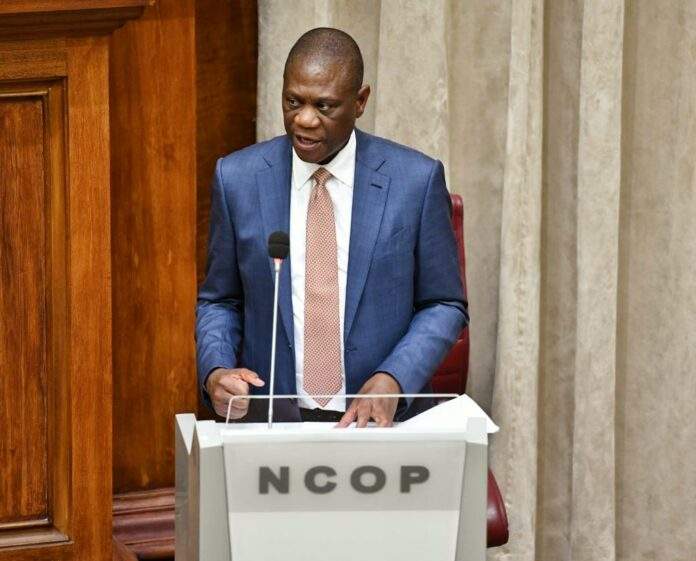In a briefing during parliament’s hybrid plenary, Deputy President Paul Mashatile outlined the government’s commitment to improving service delivery and empowering communities through the district development model (DDM).
Mashatile was responding to questions raised by MPs addressing key national concerns including the delivery of essential services, youth unemployment, land reform acceleration, and agricultural support provision.
The deputy president emphasized the expansion of essential services and the need to extend these services to communities beyond the traditional service delivery hotspots.
He highlighted that the DDM aims to establish a comprehensive and measurable one-plan approach in each district, ensuring that services are not only accessible but also of high quality.
“Through the [DDM], we are ensuring that not only is the provision of essential services expanded, but also that communities outside of the service delivery hotspots receive dependable and high-quality services,” he said.
“We strongly believe that through the DDM and service delivery rapid response approach, we shall have, in each district, a one-plan approach that is measurable, implementable, and citizen-focused.
“What is of critical importance to us is putting communities at the heart of service delivery and organising citizens and members of civil society to contribute towards the development of a brighter tomorrow for all communities.”
Regarding the issue of water scarcity, Mashatile acknowledged that South Africa possesses ample water resources but highlighted the challenge of water reticulation.
He expressed government’s commitment to ensuring access to water and preventing grid collapses, indicating that efforts would be made to improve water distribution systems.
The deputy president also addressed concerns about the power supply, assuring MPs that dilapidated power stations would be repaired and maintained to avoid disruptions during the country’s transition to alternative energy sources.
He added that this commitment aims to ensure a smooth transition and prevent power shortages.
“We are going to come with a very strong strategy that we always have water. South Africa has a lot of dams, we must just make sure that there is access because sometimes it is not that there is no water, it is just that reticulation is a problem.
“People cannot access water, we must make sure that they access water and that there shall be no grid collapse.
“We are [also] fixing the power stations, even the old ones that people said we must abandon. We are going to fix them so that we do not transition in the dark.”
In response to questions about political interference in service delivery and allegations of incompetence within the ANC as the governing party, Mashatile started off by defending the party’s cadre development policies which is currently under scrutiny.
He underscored that ANC leaders undergo a rigorous selection process, being interviewed by competent individuals to ensure their competence for public office.
He also dismissed claims of the party employing incompetent individuals as baseless and emphasized the ANC’s commitment to producing capable leaders.
“All the mayors of the ANC were interviewed before they assumed public office, they were interviewed by the most competent people.
“It is just that sometimes the DA does not understand the issue of cadre development, because they think that when we talk about cadre development and cadre deployment, we just go [and] fetch someone from the street.
“There is a school in the ANC, we train people and ensure [that] they are competent for their roles. This story about us employing incompetent people is not true.”
To read more political news and views, click here.
Follow @SundayWorldZA on Twitter and @sundayworldza on Instagram, or like our Facebook Page, Sunday World, by clicking here for the latest breaking news in South Africa.



